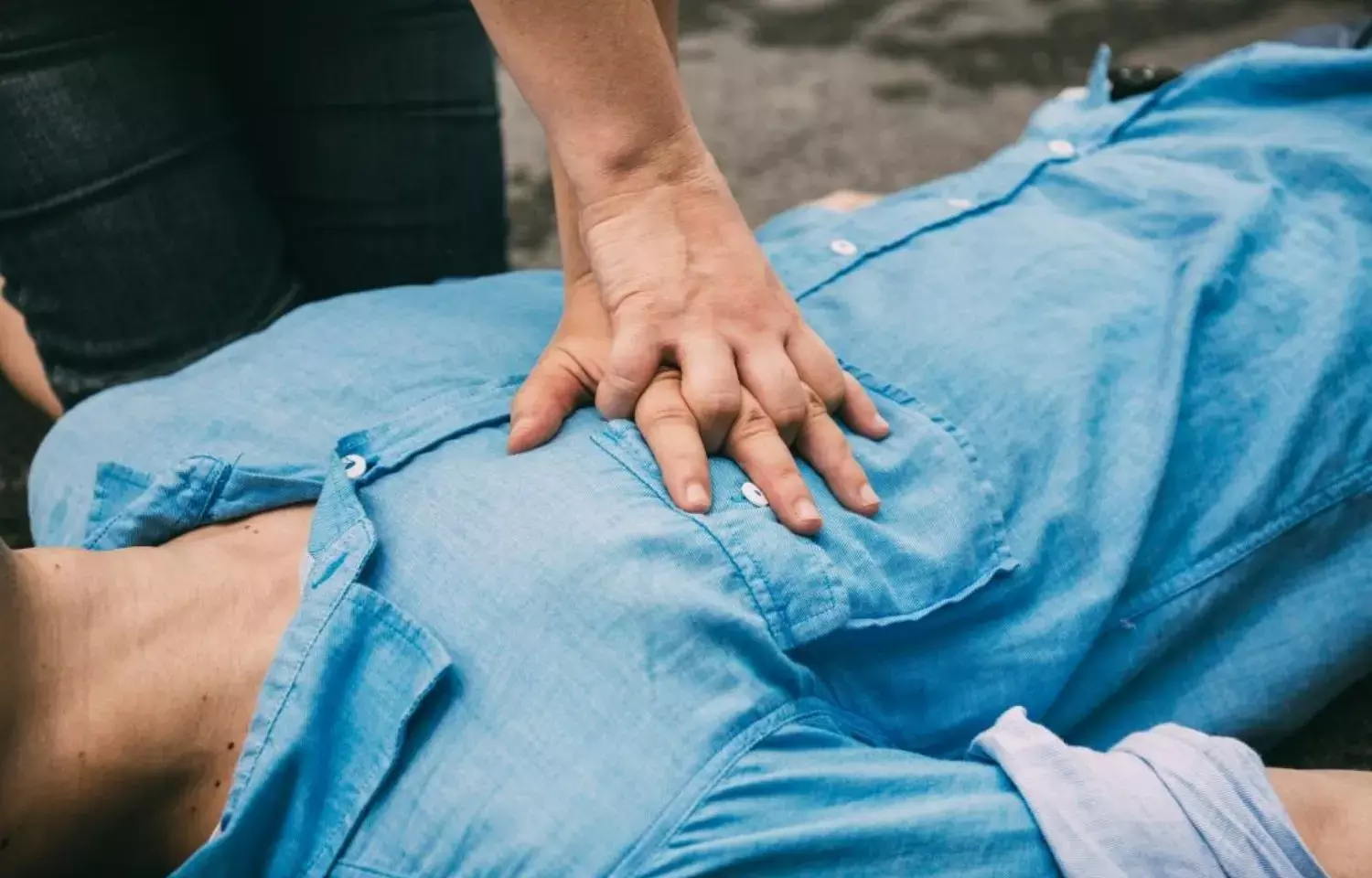- Home
- Medical news & Guidelines
- Anesthesiology
- Cardiology and CTVS
- Critical Care
- Dentistry
- Dermatology
- Diabetes and Endocrinology
- ENT
- Gastroenterology
- Medicine
- Nephrology
- Neurology
- Obstretics-Gynaecology
- Oncology
- Ophthalmology
- Orthopaedics
- Pediatrics-Neonatology
- Psychiatry
- Pulmonology
- Radiology
- Surgery
- Urology
- Laboratory Medicine
- Diet
- Nursing
- Paramedical
- Physiotherapy
- Health news
- Fact Check
- Bone Health Fact Check
- Brain Health Fact Check
- Cancer Related Fact Check
- Child Care Fact Check
- Dental and oral health fact check
- Diabetes and metabolic health fact check
- Diet and Nutrition Fact Check
- Eye and ENT Care Fact Check
- Fitness fact check
- Gut health fact check
- Heart health fact check
- Kidney health fact check
- Medical education fact check
- Men's health fact check
- Respiratory fact check
- Skin and hair care fact check
- Vaccine and Immunization fact check
- Women's health fact check
- AYUSH
- State News
- Andaman and Nicobar Islands
- Andhra Pradesh
- Arunachal Pradesh
- Assam
- Bihar
- Chandigarh
- Chattisgarh
- Dadra and Nagar Haveli
- Daman and Diu
- Delhi
- Goa
- Gujarat
- Haryana
- Himachal Pradesh
- Jammu & Kashmir
- Jharkhand
- Karnataka
- Kerala
- Ladakh
- Lakshadweep
- Madhya Pradesh
- Maharashtra
- Manipur
- Meghalaya
- Mizoram
- Nagaland
- Odisha
- Puducherry
- Punjab
- Rajasthan
- Sikkim
- Tamil Nadu
- Telangana
- Tripura
- Uttar Pradesh
- Uttrakhand
- West Bengal
- Medical Education
- Industry
Extracorporeal CPR improves survival rate in refractory cardiac arrest: NEJM

A new study published in the New England Journal of Medicine suggests that extracorporeal cardiopulmonary resuscitation (CPR) and traditional CPR both improved survival rates and neurologic outcomes in patients with refractory out-of-hospital cardiac arrest.
In a patient without spontaneous circulation, extracorporeal cardiopulmonary resuscitation provides perfusion and oxygenation. The evidence is conflicting about extracorporeal CPR's impact on survival with a good neurologic outcome in cases of refractory out-of-hospital cardiac arrest. To compare the effectiveness of extracorporeal cardiopulmonary resuscitation versus the traditional approach, Martje Suverein and colleagues conducted this study.
Researchers randomly allocated patients who experienced an out-of-hospital cardiac arrest to either extracorporeal CPR or traditional CPR in this multicenter, randomized experiment that was carried out in the Netherlands (standard advanced cardiac life support). Patients had to be between the ages of 18 and 70, have undergone bystander CPR, have an initial ventricular arrhythmia, and not experience a recovery of spontaneous circulation in 15 minutes after the start of CPR. The main result was survival with a good neurologic outcome, which was determined by a Cerebral Performance Category score of 1 or 2 at 30 days (range: 1 to 5; higher scores indicate more severe impairment). On the basis of intention-to-treat, analyses were conducted.
The key findings of this study were:
Out of 160 patients who were randomly allocated, 70 received extracorporeal CPR and 64 conventional CPR; 26 patients were eliminated because they did not match the inclusion criteria at the time of hospital admission.
Compared to 10 patients (16%) in the conventional CPR group, 14 patients (20%) in the extracorporeal CPR group were still alive and had a positive neurologic outcome at 30 days (odds ratio, 1.4; 95% confidence range, 0.5 to 3.5; P=0.52).
In both groups, the average number of major adverse events per patient was comparable.
Reference:
Suverein, M. M., Delnoij, T. S. R., Lorusso, R., Brandon Bravo Bruinsma, G. J., Otterspoor, L., Elzo Kraemer, C. V., Vlaar, A. P. J., van der Heijden, J. J., Scholten, E., Heijnen, B. G., Dos Reis Miranda, D., … van de Poll, M. C. G. (2023). Early Extracorporeal CPR for Refractory Out-of-Hospital Cardiac Arrest. In New England Journal of Medicine (Vol. 388, Issue 4, pp. 299–309). Massachusetts Medical Society. https://doi.org/10.1056/nejmoa220451
Neuroscience Masters graduate
Jacinthlyn Sylvia, a Neuroscience Master's graduate from Chennai has worked extensively in deciphering the neurobiology of cognition and motor control in aging. She also has spread-out exposure to Neurosurgery from her Bachelor’s. She is currently involved in active Neuro-Oncology research. She is an upcoming neuroscientist with a fiery passion for writing. Her news cover at Medical Dialogues feature recent discoveries and updates from the healthcare and biomedical research fields. She can be reached at editorial@medicaldialogues.in
Dr Kamal Kant Kohli-MBBS, DTCD- a chest specialist with more than 30 years of practice and a flair for writing clinical articles, Dr Kamal Kant Kohli joined Medical Dialogues as a Chief Editor of Medical News. Besides writing articles, as an editor, he proofreads and verifies all the medical content published on Medical Dialogues including those coming from journals, studies,medical conferences,guidelines etc. Email: drkohli@medicaldialogues.in. Contact no. 011-43720751


